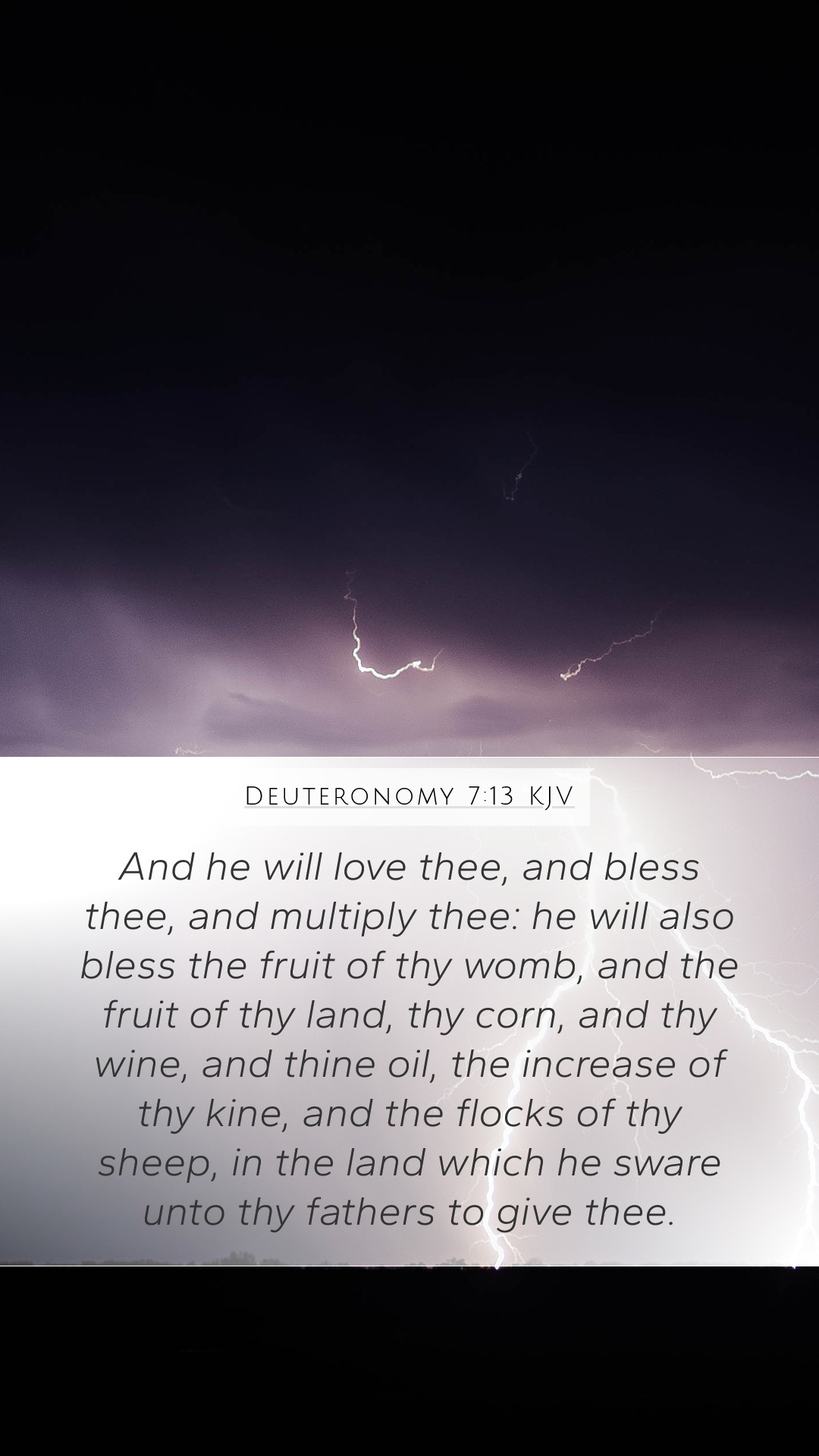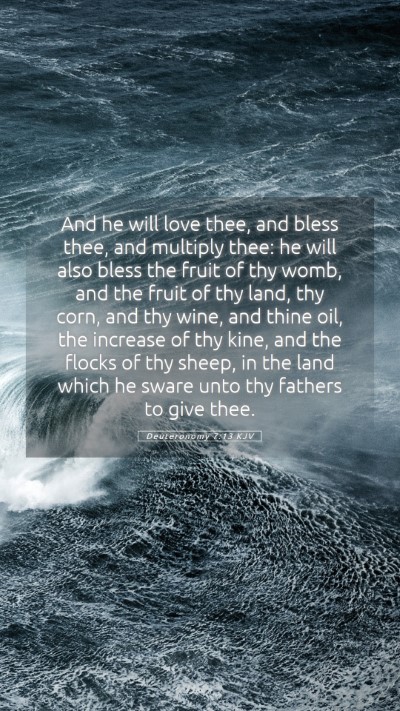Understanding Deuteronomy 7:13
Bible Verse: Deuteronomy 7:13 states, “And he will love thee, and bless thee, and multiply thee: he will also bless the fruit of thy womb, and the fruit of thy land, thy corn, and thy wine, and thine oil, the increase of thy kine, and the flocks of thy sheep, in the land which he sware unto thy fathers to give thee.”
This verse is rich in meaning, containing various layers of blessings promised by God to the Israelites. The insights garnered from public domain commentaries such as those by Matthew Henry, Albert Barnes, and Adam Clarke give us a clearer understanding of its significance.
Commentary Insights
-
Matthew Henry's Commentary
Henry emphasizes that this verse encapsulates the unconditional love and blessings of God toward His people. The phrase "he will love thee" signifies not just affection but a covenantal commitment, highlighting the intimate relationship between God and Israel.
-
Albert Barnes' Notes
Barnes adds a layer by detailing the various blessings mentioned—“the fruit of thy womb,” refers to children, while “the fruit of thy land” pertains to agriculture and livelihood. This suggests a holistic blessing encompassing family, sustenance, and prosperity which is rooted in the obedience of the Israelites.
-
Adam Clarke's Commentary
Clarke provides additional context by linking the blessings promised in this verse to the faithfulness of God. He points out that God’s promises are contingent upon the Israelites’ fidelity to Him. Blessings are often interconnected with faithful living, illustrating a dynamic relationship.
Theological Significance
The verse serves to reinforce the theme of God’s providential care and blessings associated with covenant fidelity. Understanding Deuteronomy 7:13 requires careful examination of both its language and context within the greater narrative of Israel’s history.
Key Themes and Concepts
- Divine Love: God’s love is foundational, as shown by His commitment to bless His people.
- Multiplication: The mention of multiplying signifies growth and prosperity in family and nation.
- Holistic Blessing: The blessings encompass not just spiritual aspects but also physical and material dimensions.
- Covenant Faithfulness: The blessings are tied to the Israelites’ adherence to God’s laws and commands, emphasizing the two-way relationship of covenant.
Practical Applications
For Christians today, this verse invites reflection on how one engages with God’s promises. It sparks important conversations in Bible study groups on obedience, faithfulness, and the blessings that stem from living according to God’s will.
Application to Daily Life
- Faithfulness: Strive to remain faithful in your relationship with God
- Family: Acknowledge and nurture the blessings of family and community.
- Provisions: Recognize that God provides for physical and spiritual needs.
Cross References
- Genesis 24:60 - Blessings of fertility and growth
- Leviticus 26:9 - God’s promise to bless and increase
- Psalms 127:3 - Children as a heritage from the Lord
- Deuteronomy 28:4-6 - A comprehensive picture of blessings
Conclusion
In conclusion, Deuteronomy 7:13 is a profound declaration of God’s love and the manifold blessings that are a part of living in covenant with Him. This verse serves as an essential piece for understanding how God interacts with His people, shedding light on the promises He makes and the conditions attached to these divine gifts. For those seeking deeper Bible study insights and understanding Scripture, exploring such verses is crucial for enriching faith and daily living.


